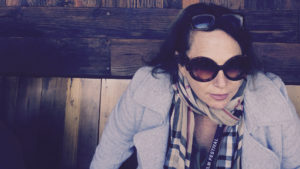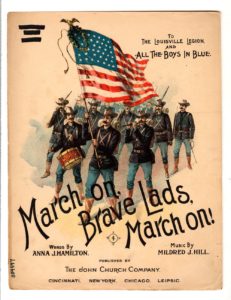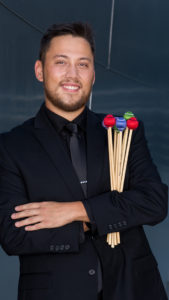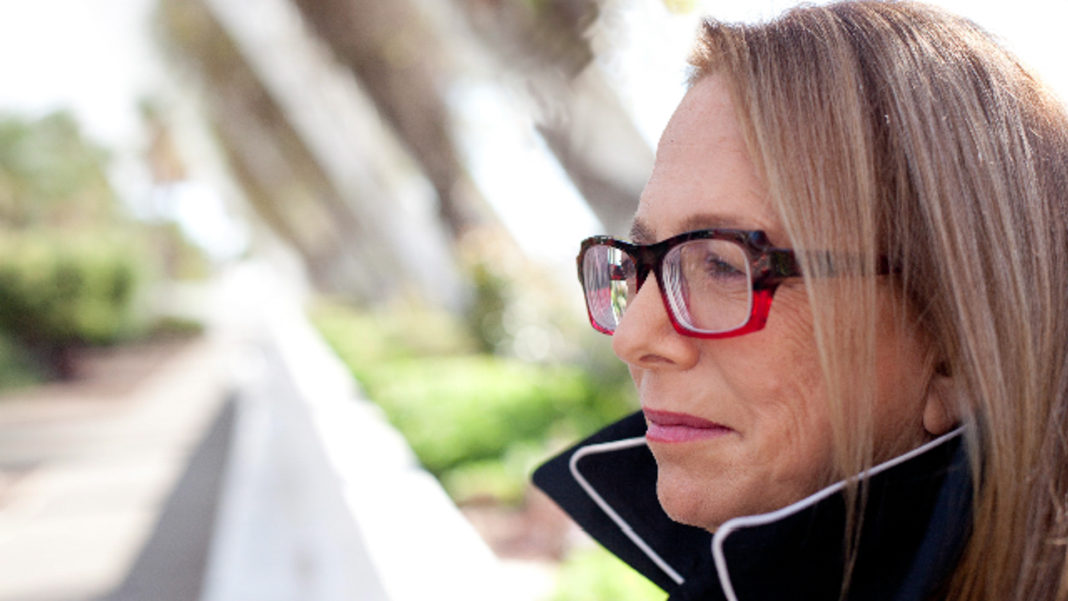“They said the program was going to be all-American,” says composer Laura Karpman. “That’s a great title for a piece.” And with that, the composer of numerous classical pieces and countless film and television scores was off and running with her commission from the Los Angeles Philharmonic. And it is indeed entitled All American. Karpman’s composition will have its world premiere as the first piece on the program at Thursday night’s concert at the Hollywood Bowl.
All American will precede Aaron Copland’s Appalachian Spring, Samuel Barber’s Violin Concerto (with James Ehnes as the soloist) and finally Harlem by Duke Ellington. Leading the LA Phil will be conductor James Gaffigan.

When we last spoke with Laura Karpman she was curating a program celebrating film scores. This time around it was her own work we got to discuss.
All American is a common term for a particular type of athlete. How did you want the term to be understood vis-á-vis your composition?
This idea of what patriotism is and what it means to me. It weaves it way through a lot of work. Because it is a muscular title, and I say that with great purposefulness, I wanted to take a chance to play with it and see what came out of it that was relevant to me. I wasn’t thinking so much about football players, I was thinking about what people think about as American music. What makes something American? What is an American sound?
You state in the program notes that you were lead to the idea of the invisibility of women composers. How did that develop as the response to your questions?
I think that my first impulse was to take a John Philip Sousa piece and have some fun with it and turn it upside down. Why am I doing that? I wonder if there are patriotic songs by women composers. I got in touch with a professor at UC Davis who had uncovered songs by women composers – hundreds of them. These women were so prominent in their time. Why does only the great male composers like Irving Berlin and George Gershwin remain with us? Why have they superseded these women? Because their story hasn’t been told like it should be.
How did these pieces you discovered inform what you wrote?
It’s a short piece, there are kind of mini-movements which are devoted to the three songs I use.

The three songs she used as inspiration were March on, Brave Lads, March on! by Mildred Hill (best known for co-writing Happy Birthday); Your Country Needs You by Emily Wood Bower and Anita Owen’s Neath The Flag of The Red, White and Blue.
The whole opening is from Brave Lads… [Karpman hums part of the song.] If you think of the Copland… [she humans part of Appalachian Spring] …it’s the same impetus. It’s this open-hearted kind of Americana theme. There’s a dream that we all hang on to. A lot of it is manufactured and a lot of it is real. Those are the tools we use as artists. How do we musicalize that dream? This is my small way, for six-and-a-half to seven minutes, to acknowledge the inspiration these women had.
In the program notes you also indicate that you are using silverware, baking sheets, pots and pans and your 5-quart braiser. How did you find what their particular musical qualities were?
A lot of it is creating an analogy to other pieces like Fanfare for the Common Man. What’s another way to create military percussion? I started to buy things. I wondered if there would be a meat tenderizer that would work and I bought five of them. I bought this braiser and started banging it.

I spoke with Matthew Howard [principal percussionist with the LA Philharmonic] and asked what would work? What would that sound like? He emailed me and asked if should we use clay or metal pots. Let’s use metal because I was thinking of tubular bells. I listened to John Adams’ use of the wood block, but I didn’t want to do that. How can I get this by using this stuff associated with the home or kitchen. I wrote the piece with more traditional percussion in mind and thought let’s use a trash can instead.
The three songs you use are very patriotic. How would you define patriotism in 2019?
Being out loud about who you are and what you believe! And trying to do something with whatever resources you have available to you to love this country and keep it on the right track or take it to the right track.
Writer Barbara Ehrenreich said, “No matter what, patriotism is too often the refuge of scoundrels. Dissent, rebellion and all-around hell-raising remain the true duty of patriots.” Do you agree with her and does All American represent your true duty as a patriot?
I’d like to think so. I value being an American. I understand how complicated and fraught our history is with murderous tragedies. But there is an ideal we have to keep aspiring to. We have to. As a gay person, too. Just what’s happened in the last 15-20 years is astonishing.
This is personal and you don’t have to write about it, but it was my spouse’s birthday and I wanted to throw her a big party. We had a surprise wedding. Because of Prop 8, we never had a celebration. My grandparents never could have dreamt of this kind of freedom. You have to look at these things and appreciate it. I love being an American.
For tickets go here.
Photos of Laura Karpman courtesy of ID-PR.
Update: This piece has been modified to reflect subtle re-wording requested by Ms. Karpman after publication. They do not in any way change the tone or content of this interview.










